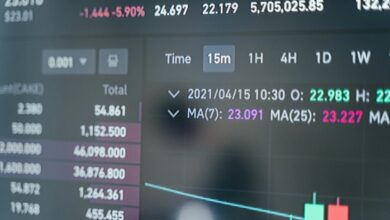Strategic Partnership Success: Compelling Reasons to Choose the Best Vendor Management Platform

Companies heavily depend on external vendors and suppliers to deliver critical services, goods, and abilities that drive the performance of their business and competitive advantage in the modern connected business. With the expansion of firms across boundaries and ambitiously demanding regulatory demands, the rising needs of stakeholders on openness and accountability of performance, handling such complex issues in the realm of these elaborate vendor relations has become more challenging by the hour. Selecting the superior vendor management platform is a tactical decision that can significantly change the ways companies construct, as well as manage, and optimize their supplier networks.
Comprehensive Vendor Qualification and Due Diligence
Thorough qualification processes that consider potential vendors in multiple facets of competency, dependability, and strategic fit are at the center of successful vendor relationships. To ensure that only qualified vendors become members of your supplier ecosystem, a more sophisticated vendor management platform provides systematic criteria to determine the technical expertise levels, financial strengths, quality standards, regulatory adherence, and cultural alignment. They automate the processes that previously entailed immense levels of manual work and cross-functional coordination, including document collection, validation, and risk evaluation criteria. Subjective bias is eliminated by integrated scoring algorithms and defined assessment criteria, which also guarantee uniform implementation of qualification requirements across all vendor categories and business divisions.
Centralized Information Management and Accessibility
Effective management of vendors requires comprehensive information systems that collate vendor information, contract information, performance data, and contact records into standardised, centrally stored, and readily available databases that support sound decision making. Exceptional platform tools have centralized vendor profiles, establishing individual sources of truth vendor-based information by retrieving all relevant data from initial qualification up to further relationship management. When making choices or managing relationships, all stakeholders will have access to up-to-date, correct vendor information thanks to this centralization, which also removes information silos and minimizes redundant data entry. Users may rapidly find particular information, evaluate vendor capabilities, and find appropriate suppliers for new requirements thanks to advanced search and filtering options.
See also: How to Stay Updated With the Latest News Efficiently
Automated Performance Monitoring and Evaluation
An essential skill that helps businesses to uphold high service standards while seeing areas for development and relationship enhancement is continuous performance monitoring. An advanced vendor management platform includes automatic performance tracking tools that keep an eye on important parameters, including cost performance, response times, quality standards, and delivery dependability across all vendor relationships. These systems regularly generate scorecards, trend analysis, and exception reports that indicate areas that require attention or remedial action, as well as outstanding performance. Such alerts are automated and can be used ahead of time to prevent issues that may cause organizational problems, since they can alert stakeholders when performance becomes substandard.
Risk Assessment and Mitigation Strategies
An effective vendor management platform must have complete risk management capabilities because of the many hazards that modern corporate settings bring, which can affect vendor relationships and company continuity. Advanced systems provide risk assessment systems that assess all the cybersecurity positioning of any vendor affiliation, their operational capabilities, financial stability, geographic exposure, and regulatory compliance. Companies can employ the findings of these tests in risk ratings and profiles to help them prioritize risk reduction initiatives as well as make informed decisions concerning backup plans and vendor reliance. Capabilities for continuous monitoring keep tabs on shifts in risk factors and offer early warning systems for new dangers that can affect company operations.
Contract Lifecycle Management and Compliance
Successful vendor partnerships are built on effective contract administration, which calls for advanced systems that can manage intricate agreements, keep an eye on compliance, and maximize contract performance over the course of the relationship. Larger vendor management platforms or e sourcing software also feature large contract libraries that store all agreements, changes, and other related documents in more searchable formats so that effective contract management can be achieved. To eliminate the loss of opportunities and potential non-compliance, the automated alerts remind stakeholders of key contract milestones such as renewal, performance reviews, and compliance due dates.
Enhanced Communication and Collaboration Tools
Successful vendor relationships require long-term communication and cooperation that extends past transactional interactions to include strategic planning, problem-solving efforts, and innovation projects. Advanced modes of in-depth communication that modern vendor management platforms or e sourcing software have created provide businesses with the opportunity to remain in touch with their suppliers, sharing documents and managing projects together on a regular basis. Vendor portals enable the suppliers to have access to relevant data, communicate changes, and get to know the right people without involving many coordination and manual processes. Project collaboration elements support joint efforts, innovative programs, and strategic alliances that create competitive advantages and definite value to each other.
Financial Management and Cost Optimization
Comprehensive financial management capabilities allow organizations to streamline costs associated with the vendor, while still maintaining transparency and control over expenses and commitment to suppliers. Advanced solutions can provide more complete spend analytics by monitoring vendor, category, time-period, and business unit spend so that firms can determine how they can cut expenses and use their supplier portfolio to their competitive advantage. Spending limits, approval procedures, and variation reporting are all supported by budget management tools, which uphold financial restraint while permitting wise supplier relationship investments. Cost benchmarking tools provide information for contract optimization and negotiation by comparing vendor prices to peer suppliers and market rates. The platforms also provide total cost of ownership analysis, which takes into account indirect costs like administrative overhead, quality problems, and risk mitigation initiatives in addition to direct expenditures.
Strategic Supplier Development and Innovation
The most cutting-edge vendor management platform or e sourcing software facilitates innovation programs and strategic supplier development activities that boost supplier capabilities and cooperative value creation to provide businesses a competitive edge. By detecting capacity gaps, chances for performance enhancement, and strategic alignment projects that improve supplier relationships and company results, these platforms help with supplier development planning. Features of innovation management facilitate collaborative development projects, programs for generating ideas, and technology transfer efforts that make use of supplier skills and knowledge to gain a competitive edge.
Conclusion
The selection of the right vendor management platform or e sourcing software is a strategic investment that transforms the relationships with suppliers into strategic alliances that foster operational excellence, the achievement of a competitive edge, and long-term value generation across the entire vendor ecosystem.





